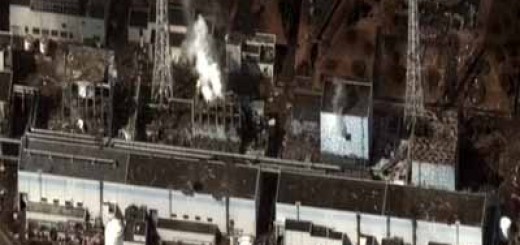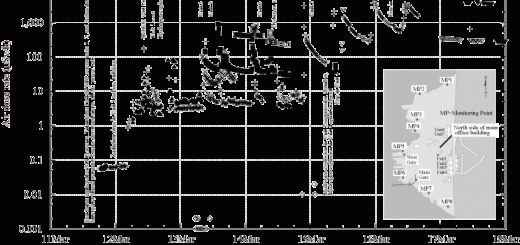High School Students Looking Squarely at and Communicating about the Nuclear Accident
By Watanobe Yoshihiro, Fukushima Prefectural Soma High School Teacher
A radio documentary program was produced by the Fukushima Prefectural Soma High School Broadcasting Station (the so-called Broadcasting Club) in June 2011. The program, entitled “From the Emergency Evacuation Preparation Unnecessary Zone,” was produced by a first-year female student living in Minami Soma City. The anxiety of living outside the 30 km zone around the nuclear power plant (NPP) is depicted. During this time, the high school students of Fukushima Prefecture were frequently treated like symbols of “restoration.” This student’s program was, however, very different. I was firstly surprised at her naming of the area outside the 30 km zone as the Emergency Evacuation Preparation Unnecessary Zone, as it conveyed a message that was directly opposed to government policy. What further surprised me was the narration.
Near the end of the program, the announcer says “It doesn’t matter if it’s the truth or lies, if we could have believed what the government was telling us, we wouldn’t be suffering like this” which was a very raw utterance for a high school student to make at the time. There were people expressing their anxieties about the nuclear accident and radiation on the Internet, but there had been no utterances like this in the newspapers or on TV. Thus, for me, her advisor, I was convinced that this assertion was an important one that should be heard.
This program was produced for the NHK Trophy All-Japan High School Broadcast Contest. If the program passed the Fukushima Prefecture contest, it would have been heard by high school students and advisor teachers nationwide. I thought it was just possible that it would open a little ventilator hole letting some fresh air into society. It seemed to me like a program that just might do that. In the event, however, the program finished fifth in the prefecture contest. (It was necessary to finish fourth or better to gain the qualification to participate in the nationwide contest.)
I felt that I wanted to do everything I could to get as many people as possible to listen to this program. Even so, at that time I had no means of communicating it broadly to society. However, sparked by this program, I received a request to make a play from the voices of Fukushima high school students. The title of the play, which would hit audiences straight on with the feelings of high school students living in Fukushima Prefecture, was (tentatively) “What I Want to Tell You Now.” The play was scheduled to be performed only once, but it received such a great response that it was performed nine times in seven locations nationwide to a total audience of 1,500 people. A video recording of the play was screened throughout Japan along with a group of productions that were produced at a later date, making it possible to bring these voices to an even greater number of people. In April 2015, I moved to another school. As I was asked to continue the screening activities, I established a voluntary group called the Soma Chronicle. The people who helped me to carry on to this next stage were almost all people who had come to see not only the play but also the screenings or who had read articles about them. I believe that it was the deeply compelling cries of the high school students embodied in the works that had caught the heartstrings of these people.
From this academic year, I once again became the advisor of the Soma High School Broadcasting Station. The Broadcasting Station had not produced any programs that directly covered the earthquake disaster since 2016, but after this long hiatus a documentary radio program called “Do you know about the ALPS-treated water?” was produced during this current academic year. Involving not only teachers and students, the program also featured interviews with officials of the Ministry of Economy, Trade and Industry (METI) and the Prefectural Office. Of course, the voices of local fisheries-related people were also indispensable. The broadcast contest requires a “high school students’ viewpoint.” If the students take up a social problem, they are sometimes assessed as ‘not having their feet on the ground.’ But as long as you live in Fukushima, the so-called “treated water” and the fact that contaminated water is being produced every day are problems that simply cannot be avoided. I feel proud as an advisor that the students have become aware of this issue and are actively doing something about it. The program points out problems with the METI class on treated water. An essay about this part won a special prize for merit at the Hirosaki University Dazai Osamu Commemorative Tsugaru Award essay competition. The program was therefore certified by a university as being very logical. The impacts of the nuclear accident will continue to be felt, but I hope to continue to face up to this issue with the students in the future.


